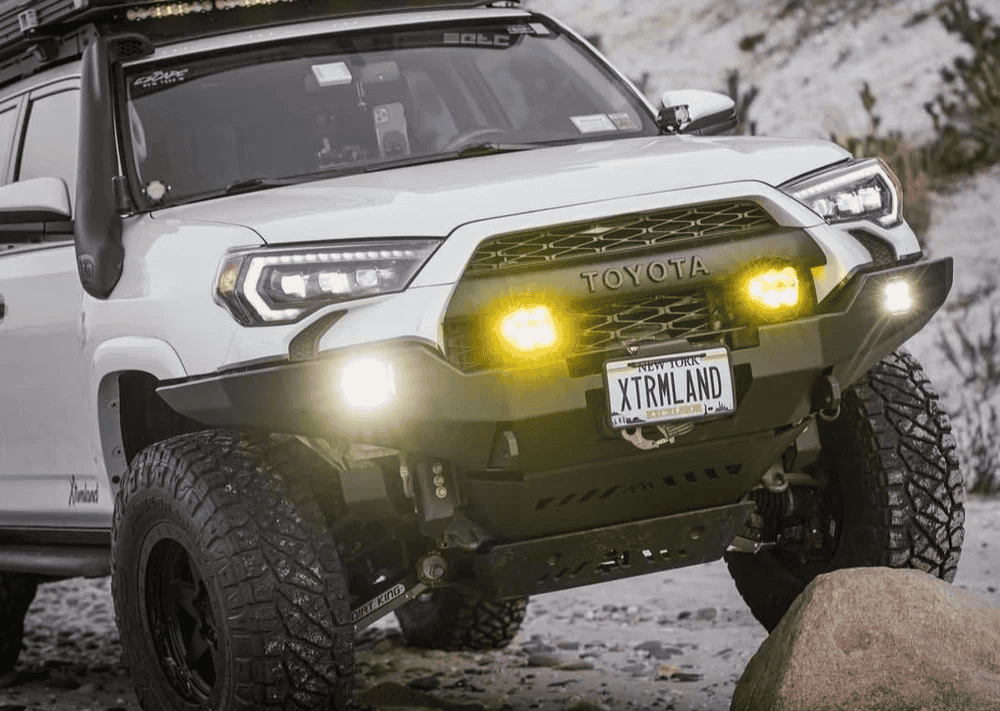Overland Vehicles

Financing starts with a realistic budget. Overland conversions sit on a wide spectrum, from simple power upgrades to full interior builds with off grid capability. Total spend often reflects three drivers: systems, structure, and finish. Systems cover power, heating and cooling, plumbing, and charging. Structure includes cabinetry, bed platforms, insulation, and flooring. Finish covers surfaces, lighting, and storage integration.
Typical line items that shape financing size:
Build timelines can influence loan timing. Some borrowers prefer approval with a rate lock just before parts ordering. Others choose staged draws matched to milestones. Either way, a clear scope and schedule helps lenders assess risk and can improve your overall terms.
Financing overland work differs from a standard auto loan because much of the value sits in specialized components and labor rather than the base vehicle. Three common paths are used to pay for the conversion itself.
Personal loans are widely offered, with fixed rates and set terms that often run two to seven years. They do not require collateral, so the vehicle title remains untouched. Strong credit, steady income, and a moderate debt to income ratio help secure better rates. Expect faster approvals, predictable payments, and no prepayment penalty with many lenders. The tradeoff is that rates can be higher than secured loans, especially for longer terms or lower credit tiers.
If the end result meets recreational criteria such as sleeping, cooking, and water systems, some lenders treat the completed unit like a recreational vehicle. These loans may extend terms beyond typical personal lending, often five to fifteen years. Longer terms reduce monthly payment size and can make cash flow easier, though total interest paid may be higher over time. Documentation is critical here: lenders typically request a detailed invoice, proof of installed systems, photographs, and evidence of professional installation. Insurance requirements may also be more specific for RV classification.
Home equity loans and lines of credit can offer lower rates because they are secured by your home. A fixed installment loan provides predictable payments, while a line of credit offers flexible draws as your build progresses. Consider the risk profile carefully, as your home backs the debt. Consult a tax professional about any potential interest deductibility. This path works well for large, single phase conversions when cash flow management is important.
Approval depends on both your profile and the clarity of the project. Lenders look at credit score, debt to income ratio, income stability, and the completeness of your documentation. Clean files move quickly.
Steps that strengthen your application:
Rate shopping is best done within a short comparison window so multiple checks count as a single inquiry on many scoring models. Prequalification tools that use soft checks can help you benchmark terms before a full application. When you receive offers, compare annual percentage rate, term length, total interest, prepayment rules, and any origination fees. A smaller payment may feel easier, but a shorter term often reduces total cost significantly.
Insurance and collateral rules vary. For RV style loans, carriers may require full coverage with stated value that includes the conversion. For unsecured loans, you will typically keep your current auto policy and insure installed equipment per your provider’s guidance. Keep all receipts and photographs of the finished work for both lender and insurance records.
Early payoff strategies can save money without straining monthly cash flow. Round up payments, make an extra payment once or twice a year, or apply windfalls directly to principal if your loan allows it. Those small additions add up over the life of the term.
Financing also benefits from realistic resale planning. Conversions that use proven components, documented installation, and serviceable layouts tend to hold value better. Lenders appreciate projects from established shops with traceable parts lists and warranties because support and replacement pathways exist if needed.
Choosing a builder who provides thorough documentation is not just convenient, it is strategic for funding. Expect a full parts list, serial numbers where relevant, wiring schematics for complex systems, and warranty information. This paper trail reduces friction with both lenders and insurance carriers and supports long term ownership.
OZK Customs supports borrowers with lender friendly documentation and clear scopes that match real world use. Explore build paths and capabilities on our overland rigs page. If you are planning a staged approach or a full turnkey transformation, see the custom overland upfit offerings to understand typical components, timelines, and deliverables. For an inside look at process, quality standards, and client experience, visit why choose OZK Customs.
Your build deserves financing that fits your life, not the other way around. When you are ready, request an itemized estimate and timeline. We will outline the project in a format lenders understand so you can apply with clarity and drive away with confidence.
Ready to turn your concept into a road ready rig? Request a detailed, lender friendly estimate from OZK Customs. Our team will scope your build, provide clear line items that support financing, and guide you from design through delivery. Start your application with confidence—submit the form and let us help you fund the adventure.
ADDRESS:
6159 E Huntsville Rd, Fayetteville, AR 72701
PHONE:
(479) 326-9200
EMAIL:
info@ozkvans.com